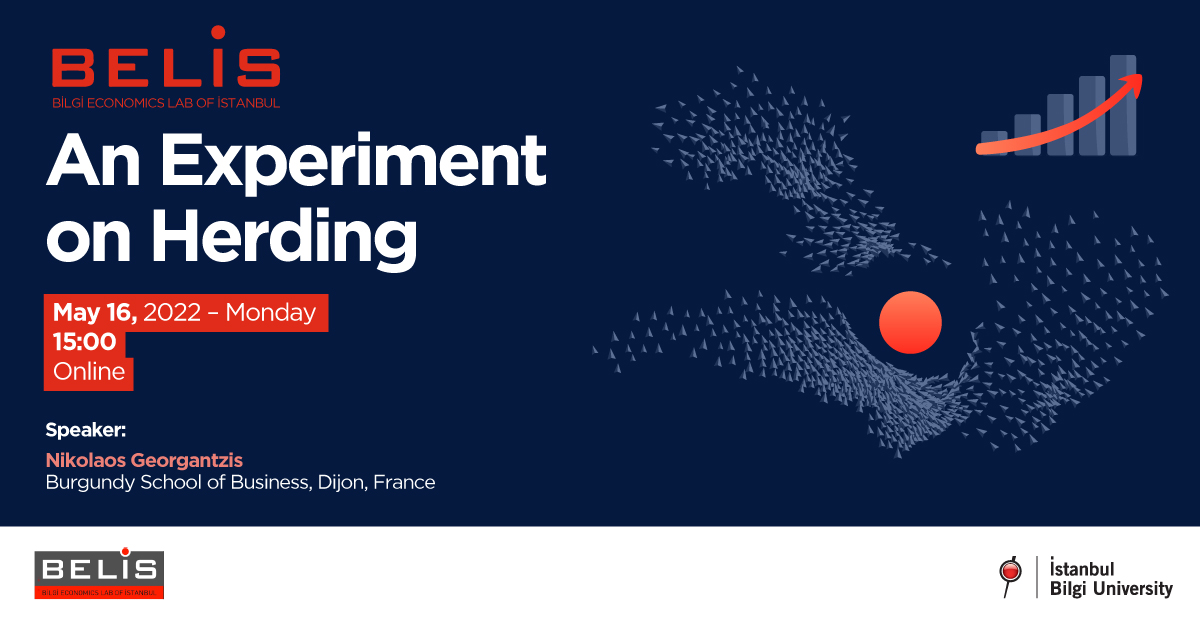An Experiment on Herding

Date: May 16, 2022 – Monday
Time: 15:00
Online
Event is organized by BİLGİ Economics Lab of İstanbul (BELİS).
Speaker: Nikolaos Georgantzis - Burgundy School of Business, Dijon, France
Herding emerges when people take sequential decisions and they imitate the behavior of their predecessors. Such behavior usually comes up because agents, when trying to take the best decision, rule out their private signals and tend to believe that the others have better information. In his seminal paper, Banerjee (1992) explained herd behavior by proposing the example of choosing a restaurant. In that paper, the baseline assumption was that restaurants were of different qualities. The main result is that people converge, by means of imitation, to the worst option in the market. However, what if the restaurants were of the same quality? Can initial random events create ‘queues’ favoring one option in the absence of any other underlying difference? Can these difference persist or will learning make them disappear?
In this paper, we investigate the emergence and effects of herding behavior in an experiment in which subjects have to choose between two identical (by design but unknown to the subjects) options. We design two treatments, one with just a private signal, and one in which we introduce an additional public signal. As expected, both signals have a positive effect on the choice. Moreover, the length of the existing queue has a significant and positive impact on the choice in all scenarios. Interestingly our results show that if restaurants are of low quality, the subjects tend to underestimate the effect of the signals and overestimate the queue, thus favoring herding.
Keywords: Experiment, herding, confirmation bias
You can click here to join the seminar.